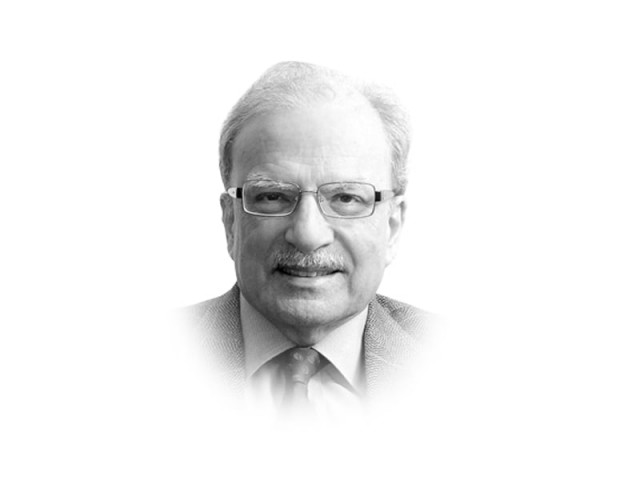Punjab’s economic awakening
Nothing will improve the confidence of the private sector than the presence of a development-minded administration.

The writer is a former caretaker finance minister and has served as vice-president at the World Bank
A bit more than six years ago, I wrote a report for the then provincial administration suggesting that with the right set of policies, coupled with the capacity to implement them, the province could see its economy grow at a rate of between eight to 10 per cent a year. That would have brought the province’s growth rate in line with those in the states in neighbouring India that are developing rapidly. The focus of my proposal was to rely on some of the known strengths of the economy and to set out a plan for the future in clear terms. That, I argued, will encourage the private sector to come in with new resources. That did not happen. Politics came in the way. Later, after the elections of 2008, an unhelpful federal government did all that was in its power to inhibit the province’s growth. The most disturbing and negative contribution was the discrimination against the province in the allocation of some of the vital resources without which the economic development could not achieve its potential. Punjab did not receive the amount of electric power and natural gas from the federally managed distribution system that should have come to it under any impartial dispensation.
While the previous Islamabad administration was not averse to blocking Punjab’s forward move, it did produce two policy changes that will be of enormous benefit to the province now that the policymaking environment is more friendly. One was the 2009 National Finance Commission Award that increased the share of all provinces in the federal divisible pool — the money collected by Islamabad, a significant part of which gets transferred to the provinces. That the provinces will get a greater proportion of the total amount was made possible by the concession made by Lahore. It agreed to move away from the formula used in the earlier awards according to which shares in the national population were the only basis of dividing the federal resource pool. This time around, Lahore agreed to include other variables in the formula; giving weights to the incidence of poverty (this favours Balochistan and Khyber-Pakhtunkhawa), negative population density (this again favours Balochistan), and source of revenue collection (this favours Sindh). Even though the new formula reduced the overall share of Punjab, there was a significant increase in the absolute amount received by the province. What is also worth noting is that the Eighth Amendment to the Constitution has laid down that the aggregate provincial share in the 2009 Award cannot be reduced. This provision introduced an element of certainty in the availability of resources for all provinces.
The other major change was the passage in April 2010 of the above noted amendment to the Constitution. By abolishing the concurrent list, it gave the provinces much greater authority in managing their own economic and social affairs. The provinces now also have much greater space within which they can raise resources from within their economies, thus augmenting what is available to them for investing in their economies.
For this reason, the public sector is now better placed to invest in the parts of the economy that need the attention of the government. This means putting resources in developing new and maintaining old physical infrastructure, developing the large human resource and improving the regulatory framework. For the amounts needed for these endeavours, the government will need to raise resources by introducing an ambitious tax and revenue generation policy. Foreign investment can also help. Assistance can come from multilateral and bilateral aid agencies and also from foreign private financial institutions that look for returns on their investment. Punjab now has the experience of using foreign help for developing infrastructure that can pay back by levying service charges. The new metro-bus service in Lahore charges the riders; solid waste-management being developed with the help of Turkey also has the potential of paying back to the investor.
With all these positive developments in place, Punjab is now set for developing a growth strategy. This should be formulated and announced quickly. Nothing will improve the confidence of the private sector than the realisation that an administration is in place in Lahore that knows its mind and has the institutional capacity to move forward. It will also provide the signal that it is better to invest in the economy rather than waste savings in consumption or send them abroad to the places that seem more secure.
Published in The Express Tribune, July 15th, 2013.
Like Opinion & Editorial on Facebook, follow @ETOpEd on Twitter to receive all updates on all our daily pieces.















COMMENTS
Comments are moderated and generally will be posted if they are on-topic and not abusive.
For more information, please see our Comments FAQ